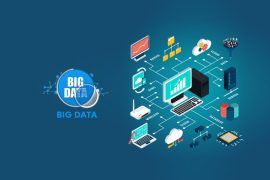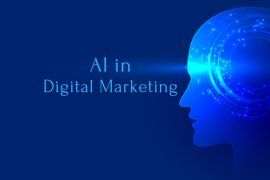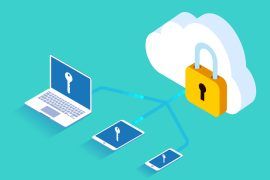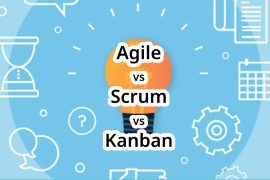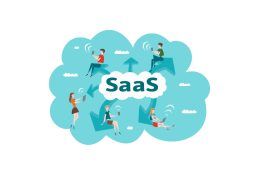Technology plays a crucial function in a society where the world is constantly evolving and is part of an internationalized world where businesses must compete for the advantages and disadvantages of ERP systems over their rivals. Businesses see the necessity to change constantly and are aware of customers’ needs to ensure satisfaction. Technology has the potential to significantly boost productivity, creativity, and productivity of businesses, allowing companies to thrive in the digital world of a globalized world by making choices quickly and easily.
Enterprise Resource Planning (ERP) Information systems incorporate applications that manage the entire department and its functions, like sales, production procurement, logistics accounting, and project management warehouses to control inventory, payroll, orders, etc.
Table of Contents
What is Enterprise Resource Planning (ERP), and Why is it Important?

Enterprise Resource Planning (ERP) systems are essential for success in many organizations. ERP is a term used to describe tools and techniques to design and manage an organization’s primary supply chain manufacturing services, financial and other procedures. ERP can significantly improve an organization’s efficiency and help automate accounting, procurement projects, project management, and customer relationship management: compliance, risk management, and supply chain processes.
While businesses can use one ERP software, the entire ERP application suite can streamline processes throughout an enterprise, connecting all aspects of the company and allowing better communication and data collection. Modern ERP systems enhance processes through digital collaboration solutions and digital tools for connecting with external partners within the company, such as suppliers, customers, banks, carriers, carriers, and more.
What are the Advantages of ERP?
The advantages of ERP are numerous. ERP system benefits include optimizing processes and helping different departments work more effectively together to improve business and client relationships. Below are some of the best benefits of using ERP.
1. Improved Collaboration
ERP systems also link teams, enhancing employee communication and increasing engagement. Through ERP systems, employees can be connected to their colleagues. ERP system allows employees to access on-demand operational data, enabling them to comprehend the business’s working parts and roles.
Reducing silos and the availability of real-time project updates help improve efficiency, resulting in smoother workflows and savings in cost. Collaboration capabilities extend beyond the boundaries of an enterprise to allow it to communicate with the most important trading partners to increase business benefits.
2. Increased Efficiency
One of the significant benefits that come with ERP can be that it lets businesses automate routine and manual tasks. Employees can concentrate on more lucrative jobs and standardize business procedures. This improves efficiency and results in increased demand forecasting, fewer production bottlenecks, reduced time to market, and a more efficient and responsive supply chain, as well as expansion of business capabilities and the ability to keep pace with competitors.
3. Built-in Compliance
Other advantages don’t add up to any if your company isn’t able to ensure compliance with regulations. The most significant benefit to ERP systems that is often neglected is that they’re created to assist in keeping track of industry regulations and compliance changes. This allows companies to stay up-to-date and be in compliance with applicable rules as well as guidelines and guidelines.
4. Real-time Data & Enhanced Reporting
One of the most significant advantages of ERP is that it’s an effective data hub. ERP systems allow users to gather, store and analyze information across your entire business from a single place, giving you a single source of truth and the ability to make more strategic decisions.
Data centralization allows companies to access in-real-time data and produce more useful reports. You can evaluate the performance of different departments with no spreadsheets or sources of data and examine business-related aspects such as the inventory level daily, allowing you to manage capital more precisely.
Today’s gold and technological advances make data available to intelligent AI systems for enhanced analytics reports, possibly providing information on demand using voice commands.
5. Better Customer Service
A part of the ERP serves as a central point for customer data. With centralized customer information, various departments can connect and work with customers to provide faster responses and better delivery and accuracy of orders. Sales reps can concentrate on building customer relationships instead of juggling spreadsheets, and marketers can design customer-centric campaigns.
6. Utilizes Data Security and Quality
One of the significant benefits of an ERP system is data security. Ultimately, at the core of any ERP idea is the concept of data. Data sharing across functional silos like sales, customer service marketing, and business development improves collaboration across the company.
The other aspect of broad data access is limiting who has access to and editing the data. ERP systems have built-in controls to safeguard your information. Cloud-based and on-premise ERP systems provide your company with more security.
The ERP system’s database allows central backups of crucial and sensitive information. Contrary to what people believe, cloud-based ERP systems add extra protection.
7. Modifies Supply Chain Management
An ERP system enhances the management of supply chains (SCM) in various ways for businesses that deal with shifting physical inventory and production. This improves efficiency and results in lower lead times, quicker delivery, and many other benefits that boost your company’s overall efficiency and business performance.
Your supply chain could be more flexible through an efficient ERP platform that improves demand forecasting, procurement, inventory management, etc.
A well-organized supply chain allows for manufacturing innovations that can allow you to cut costs and create new products that will give your company the edge that it requires to keep ahead of the competition.
What are the Disadvantages of ERP?
Although the benefits associated with using an ERP system are far more than the drawbacks, there are some to consider to ensure that implementing ERP is the right choice for your business at a particular moment.
1. Buy-in
Making changes to your company is lengthy and involves switching between various stakeholders. This is especially true when implementing new technology. It is usually necessary to get approval and approval from the top. Getting buy-in from those who must know ERP’s importance can be challenging. After implementation, getting employees to accept the system and learn to make the most of its capabilities took work.
2. High Licensing and Development Costs
Since ERP software is highly sophisticated and complex, it can be difficult and costly. A skilled and experienced team with a high level of proficiency is required to create ERP software that meets customers’ requirements. Highly qualified employees need expensive hourly rates, and creating a customized solution could be costly.
ERP systems already designed to order can be more efficient. However, their license costs are also quite expensive. While ready-made plans are less expensive, they come with lower flexibility, longer customization times, and the potential for security and maintenance issues or may be incompatible with corporate requirements and business operations.
3. High Deployment and Maintenance Costs
It’s not good news to those who think the cost of ERP systems is too costly. They require more effort and budgetary resources to create and maintain. The plans that have been made require periodic adjustments that could increase the price. However, these costs are eventually rewarded because of the increased business efficiency.
4. Complexity
With ERP systems’ many functions and capabilities comes significant complexity, and some users need assistance. Nowadays, it is not commonplace for businesses to believe it’s important to correctly design and organize to prepare for ERP deployment, leading to wasted time and money.
Your company will require much time and energy to master all ERP solutions capabilities. In addition, when the previous customers of the ERP system leave the organization and new employees take over their posts must be able to spend a considerable amount of time learning about the system instead of launching it right away.
5. Slow Implementation
Implementing the new ERP system can be a complicated and long-lasting process that could last up to two years. This is among the primary reasons to plan and prepare for the transition process to prevent disruptions and protect your business from failing. Plan time to master how to use the latest ERP platform following the implementation because even tech experts require time to comprehend the system completely.
6. No Immediate Results
The saying goes, “All things come to those who are patient. The same principle applies to ERP as well. Training, implementation, and adjusting to the new software require patience. Remember, the Romans didn’t build Rome in a day. Likewise, you’ll likely get results once you’ve run the system for a long time (ideally, at least a couple of months, but it depends on the reseller or vendor you select).
ERP installation is similar to purchasing the house you want to live in. There will be a significant return on investment (ROI) increase once you’ve understood the ins and outs of ERP and how to implement it correctly. A solution that aligns with your company’s needs can help your business grow. There is no shortcut here.
7. It Takes Time to Realize its Full Potential
As you can see from the previously mentioned drawbacks, EPR systems require a long time to operate for maximum efficiency. Alongside the lengthy development procedure, there are various stages of installation, customization of the system and initial data input, employee training, and becoming accustomed to the system, all of which can cause an inevitable delay.
Conclusion
Do you want to utilize an ERP system within your business? We aren’t usually the ones that handle it of us. ERP systems are a great alternative to save money and time in managing your business. Additionally, it is essential always to consider the requirements and goals of your business and the objectives you control. The benefits and drawbacks that come with ERP System information will help you make the best decision.

